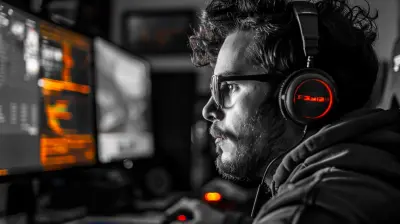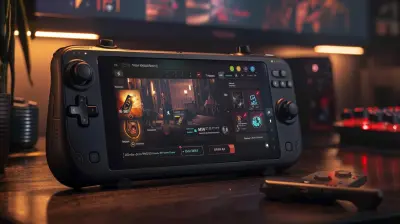The Grey Area: Legal Fallout from Gaming Leaks
14 May 2025
Gaming leaks. Just hearing the phrase is enough to send shivers down the spines of developers and publishers alike. What starts as an unauthorized slip of information can spiral into a whirlwind of excitement, speculation, and, unfortunately, legal chaos. But what exactly are gaming leaks, and why do they spark so many debates in both the gaming community and legal spheres?
In this article, we’ll peel back the layers of the murky world of gaming leaks—the "grey area," if you will. We’ll dive into the ethical and legal implications, how it impacts the gaming industry, and why you, as a gamer, might care more about this than you thought. So, grab a cup of coffee (or energy drink, we don’t judge), and let’s break it down.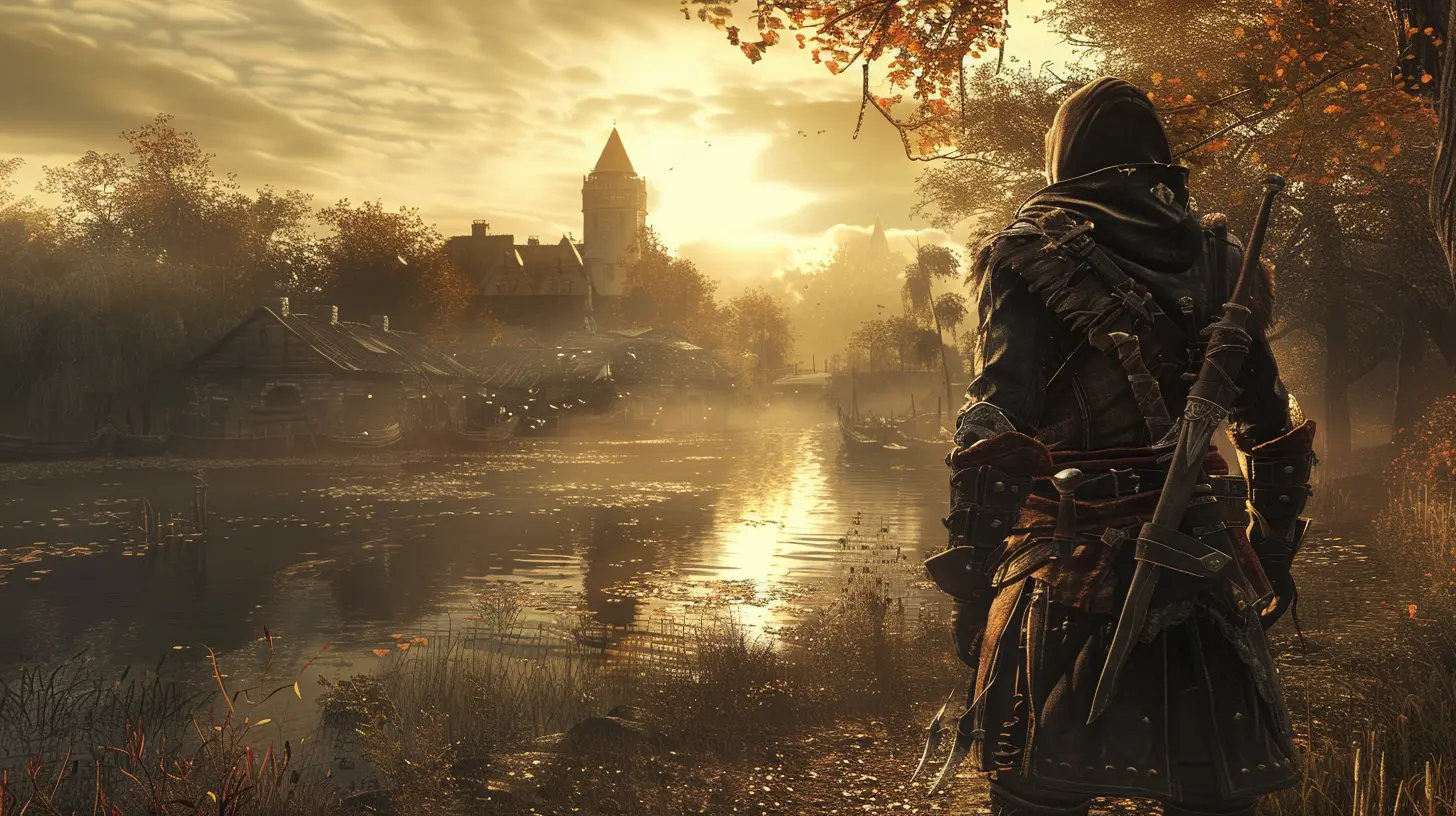
What Are Gaming Leaks?
Before we jump into the legal mumbo jumbo, let’s set the stage. Gaming leaks refer to unauthorized revelations of information about a game. This could be anything from revealing gameplay mechanics and plot details to showing off art assets or entire builds of the game before its official release. Leaks can come from a variety of sources, like disgruntled employees, hackers, or even accidental uploads.Think of it like someone spoiling a TV show you’ve been binging—except now, instead of just being bummed, the creators are scrambling to do damage control.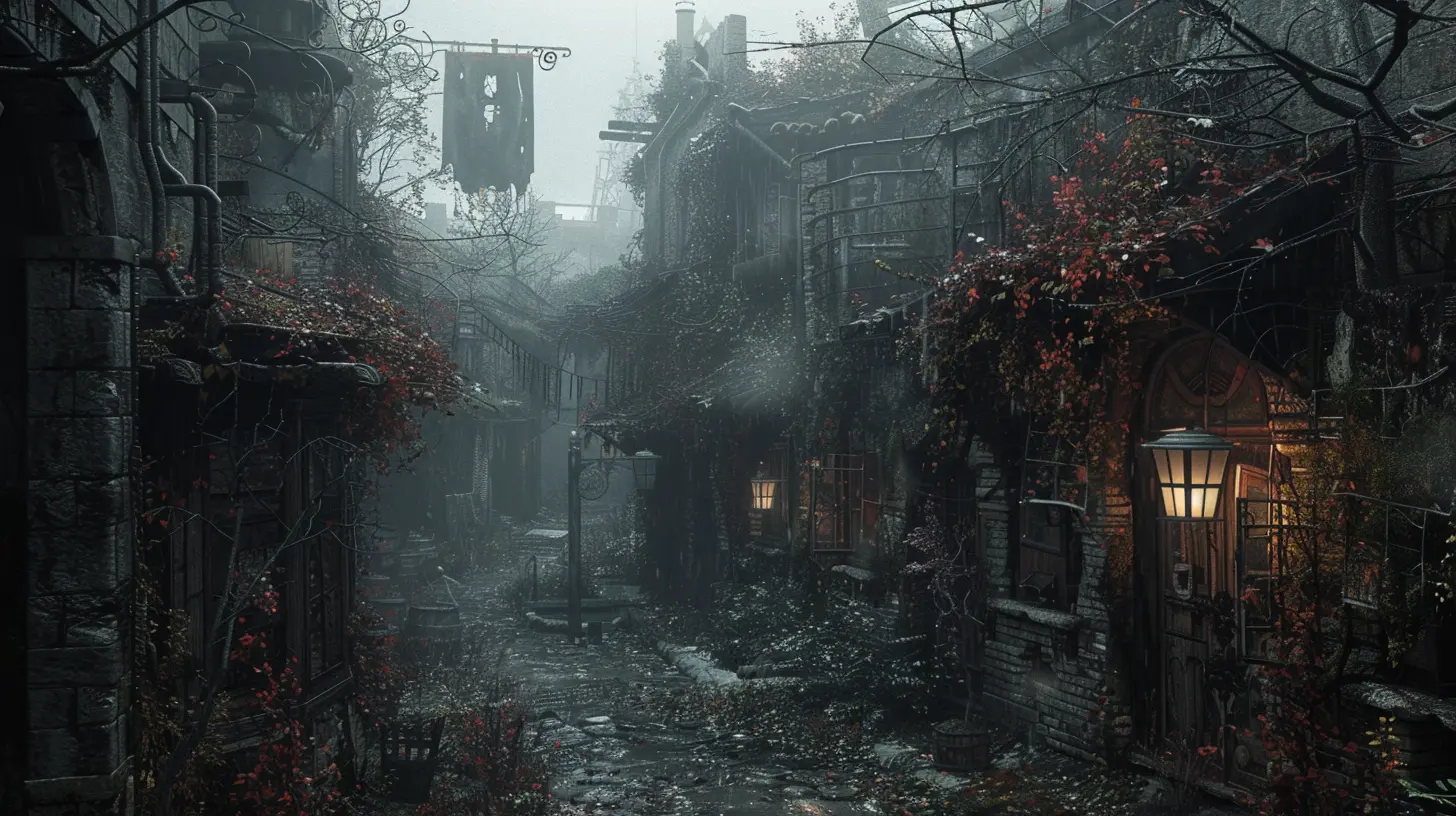
Why Do Gaming Leaks Happen?
Gaming leaks are like sneezes in a crowded elevator: annoying and usually uncalled for. But why do they happen? There’s no single answer. Sometimes, they’re fueled by curiosity and excitement from fans and insiders. Other times, they’re rooted in more malicious intentions like revenge or financial gain. Let’s break it down:1. Curiosity and Hype
Gamers, by their very nature, are passionate. They live for that next sneak peek or announcement. Unfortunately, some insiders or even hackers take it upon themselves to quench that thirst by leaking details before the developers are ready.
2. Disgruntled Employees
Every company has its share of workplace grievances, but in gaming, a bitter employee might turn to leaks as a way to hit back at their employer. It’s petty, sure, but it happens more often than we’d like to admit.
3. Hackers and Data Breaches
Hacking groups have made entire careers out of infiltrating company servers and exposing sensitive data. Gaming companies, being digital-first entities, are prime targets for cybercriminals.
4. Marketing Gone Wrong
Believe it or not, some leaks aren’t even intentional. A misstep in marketing—say, accidentally uploading an unannounced trailer—can snowball into an accidental leak.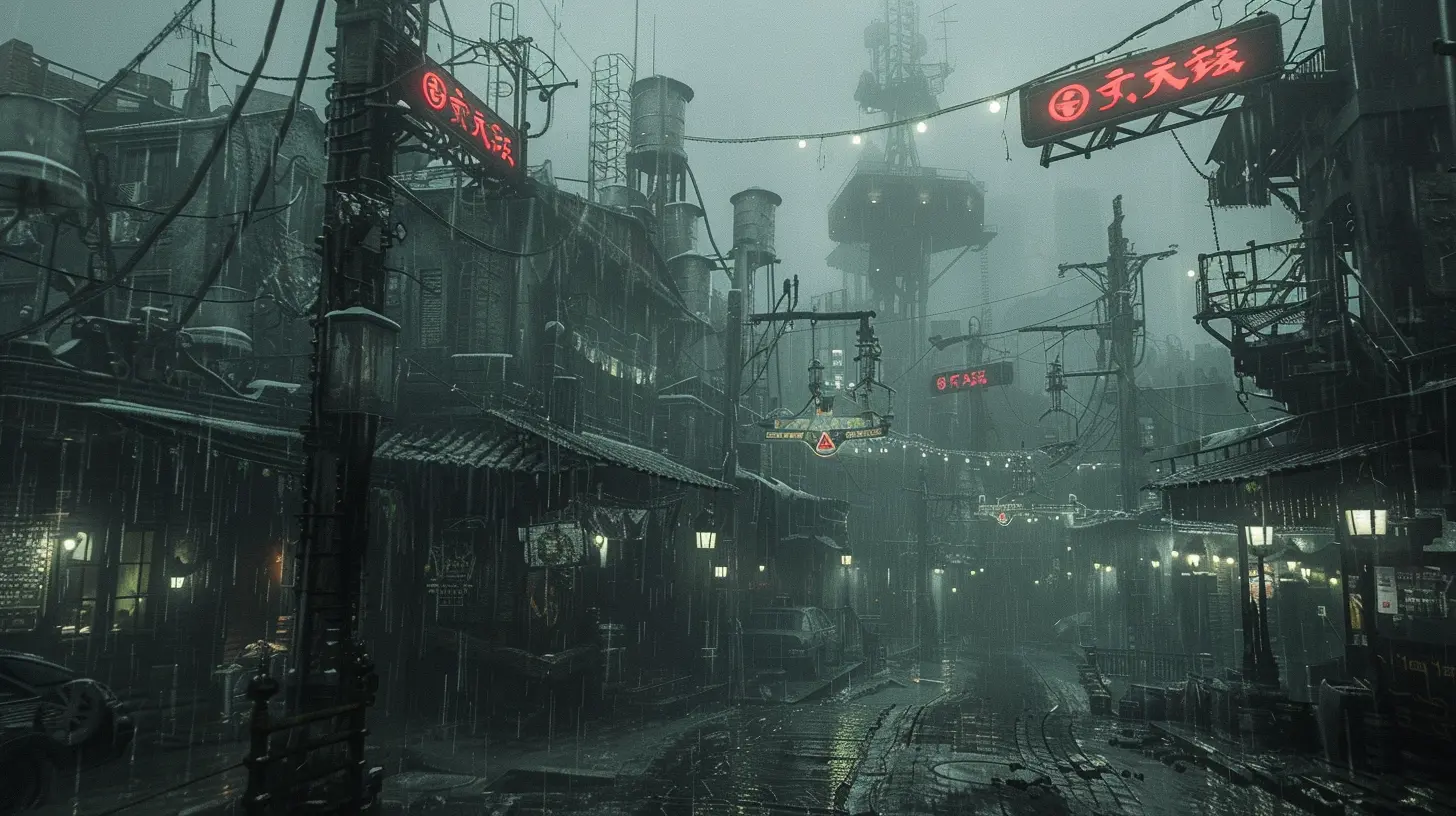
The Industry Fallout: More Than Just Hurt Feelings
Now, let’s get to the meat of things: the legal and financial mess that leaks leave behind. Spoiler alert—it’s not pretty. For gaming companies, a leak isn’t just an inconvenience. It’s a potential PR disaster, a financial black hole, and a legal headache rolled into one.Financial Losses
Let’s say a highly anticipated game gets leaked and pirated before its official release. That’s a direct hit to the company’s revenue. Developers spend years (and oodles of cash) crafting these experiences. A leak can jeopardize pre-order sales, ruin launch excitement, and even cause investors to panic. It’s like setting up for a grand fireworks show, only for someone to set it off before the audience even shows up.Broken Trust
Leaks don’t just break NDAs (non-disclosure agreements); they break trust. Whether it’s an employee or a partner involved in the leak, companies are forced to reckon with who they can genuinely rely on. It’s no exaggeration to say that a single leak can change the way studios operate, often leading to tighter (and sometimes stifling) security measures.Lawsuits and Legal Ramifications
Here’s where things get spicy. Companies often respond to leaks with lawsuits, targeting anyone they believe to be responsible. And trust me, they don’t mess around. From cease-and-desist letters to full-blown legal action, studios will go to great lengths to protect their intellectual property.Take the infamous case of the leaked code from Valve’s Half-Life 2 back in 2003. A German hacker managed to access an internal network, leading to a delayed release and rampant backlash. Valve didn’t just sit back—they worked with the FBI to track down the culprit. The result? Jail time for the hacker and a cautionary tale for everyone else.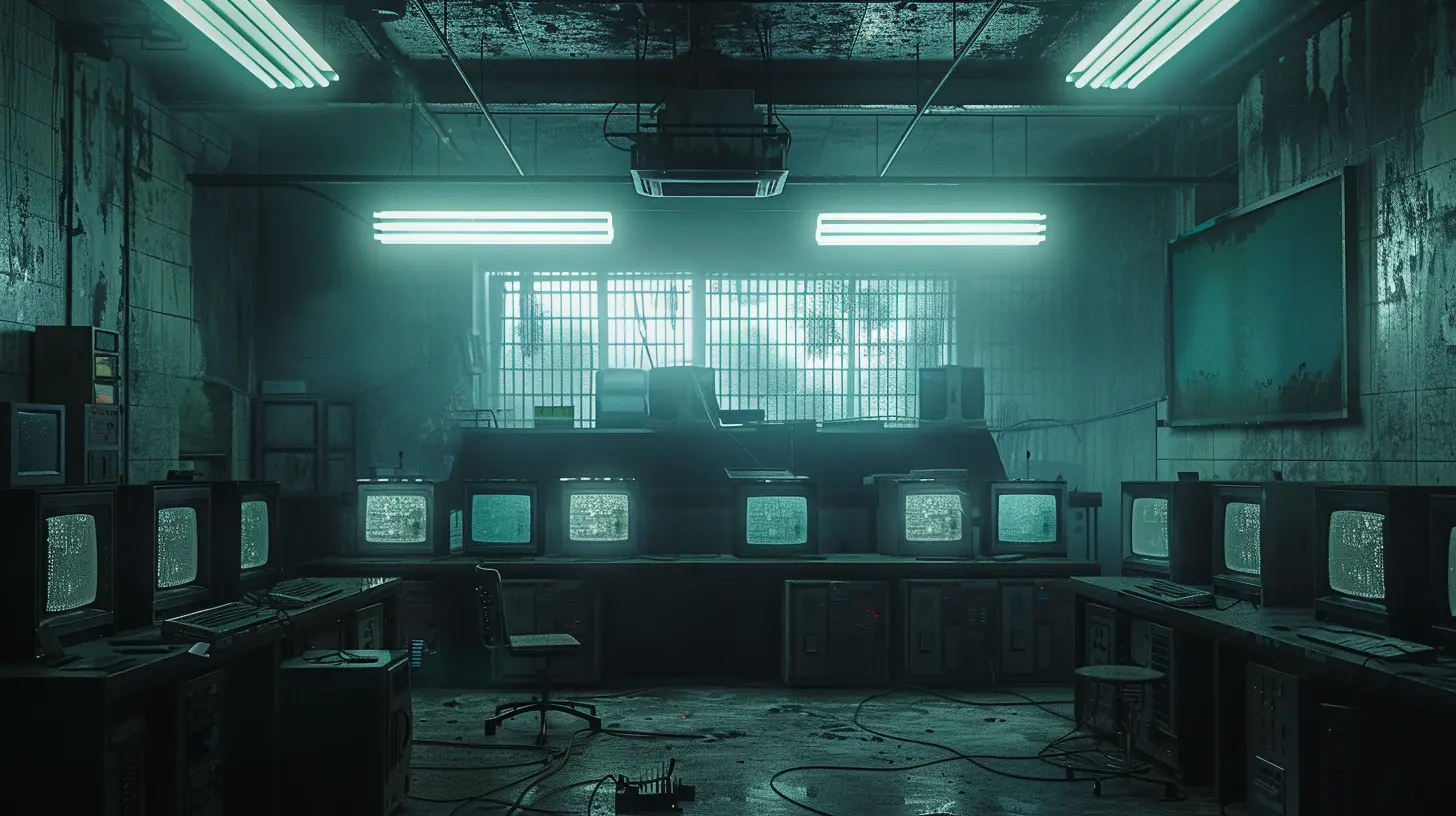
The Legal Grey Area: Who Owns the Blame?
Here’s where things get tricky. When it comes to leaks, the law isn’t exactly black and white. Sure, we can all agree that hacking into a company’s servers is illegal. But what about sharing leaked information that’s already out in the world? Is that protected under free speech, or does it cross a line into criminal territory?The Role of Journalists
Journalistic outlets have often been caught in the crossfire. Some argue it’s their job to share information with the public, even if it’s leaked. On the flip side, others believe they bear responsibility for amplifying the effects of the leak. It’s like standing at a fork in the road, and neither direction feels entirely justified.For example, when The Last of Us Part II had major plot points leaked online, many gaming sites had to make a hard decision: cover the leaks for clicks or respect the developers’ wishes by staying silent. Spoiler: not everyone took the high road.
Fan Communities and Social Media
And then there’s us—the fans. Sharing a leaked screenshot or video might feel harmless, but it’s technically participating in the spread of unauthorized material. Social media platforms like Reddit and Twitter have started cracking down on these posts, often taking them down at the request of developers. But let’s be honest, once something’s on the internet, it’s almost impossible to erase it completely.Can Leaks Be Prevented?
Short answer? Not entirely. Long answer? Companies can take steps to minimize risks, but a leak-proof system is more of a pipe dream. Here are some of the ways gaming studios are fighting back:- Stronger NDAs
Non-disclosure agreements are standard practice in the gaming industry, but companies are beefing them up to deter employees from going rogue.
- Better Cybersecurity
With hackers constantly upping their game, studios are investing in top-tier cybersecurity measures. Think of it as building higher walls to keep out the invaders.
- Controlled "Leaks"
Some companies have even embraced leaks as a marketing strategy, strategically “leaking” information to build hype. It’s a bold move, but when done right, it works.
Why Should Gamers Care About Leaks?
Alright, let’s bring this back to you—why should you, as a gamer, care about leaks? After all, who doesn’t love getting an early glimpse at an upcoming game?Well, here’s the thing: leaks spoil the magic. Games are art, and their creators pour their souls into crafting the perfect experience for players. Leaks rob studios of their chance to share that experience on their own terms. It’s like peeking at your Christmas presents early—fun for a moment, but it ruins the surprise.
Plus, the ripple effects of leaks can lead to project delays, increased security (which could mean fewer public test phases), or even cancellation. Nobody wants that.
Final Thoughts
Gaming leaks are a double-edged sword. On the one hand, they can spark excitement and discussion within the community. On the other hand, they represent a serious breach of trust and often carry significant legal and financial consequences for developers.As gamers, we have a role to play in this too. By respecting developers’ work and avoiding leaked material, we can support a more ethical and respectful gaming culture. After all, wouldn’t you rather experience a game the way it was meant to be experienced—unspoiled and fully polished?
all images in this post were generated using AI tools
Category:
Gaming LeaksAuthor:

Stephanie Abbott
Discussion
rate this article
4 comments
Marcus McNair
“Ah, the Grey Area—where gaming secrets spill like a poorly coded potion! 🍵🎮 Let’s hope the legal wizards can conjure up some fair solutions before we’re all stuck playing hide-and-seek with our favorite titles! Keep those leaks in check, folks!”
June 20, 2025 at 3:29 PM

Stephanie Abbott
Thanks for your thoughts! Navigating the grey area of gaming leaks is indeed tricky, and finding a balance is crucial for both creators and players. Let's hope for clarity and fairness ahead!
Sorin Klein
Understanding the legal landscape strengthens our gaming community. Knowledge empowers us all!
June 2, 2025 at 4:00 PM

Stephanie Abbott
Absolutely! Empowering our community with legal knowledge fosters transparency and responsibility in gaming. Thank you for your insight!
Sierra McCoy
Intriguing topic! I wonder how these legal implications could reshape the gaming industry’s approach to transparency and trust. Will players demand more accountability from developers moving forward? Excited to see!
May 20, 2025 at 1:31 PM

Stephanie Abbott
Thank you! It's definitely a pivotal moment for the industry, and increased player demand for accountability could drive significant changes in transparency practices among developers. Exciting times ahead!
Myles Forbes
This article highlights the complex legal implications of gaming leaks. It’s crucial for the industry to address these issues transparently to protect both creativity and consumer trust.
May 14, 2025 at 4:46 AM

Stephanie Abbott
Thank you for your insightful comment! I agree that transparency is essential for balancing creativity and consumer trust in the gaming industry.
